IN-DEPTH |
Part of a series on domestic violence in Springfield and Greene County. Need help? See related story
Editor's note: This story was updated to clarify that Emily Shook, an assistant prosecutor, said she could not recall a case where the prosecutor's office, not her individually, has spent more time with a victim than the office had spent with Malea Klusmeyer.
Malea Klusmeyer, 42, says she first was abused by her lawyer husband when he threatened her with a gun and then a second time by prosecutors who kept telling her what was best for her as a victim in a criminal case.
“They tell you, ‘This is what's in your best interest. We should do this.' I heard that so many times,” Klusmeyer said. “I feel like when you're in an abusive relationship, it's about power and control. And part of what happens is that you have your voice taken from you.”
She says Greene County prosecutors took her voice away a second time.
“No victim should have to go through what I have gone through to get some semblance of justice,” Klusmeyer told the Hauxeda. “It didn't take me very long to figure out that nobody was going to try to advocate for me and stand up for me and try to see that the right thing is done, except for me.”
Greene County Prosecutor Dan Patterson and Emily Shook, who is the first assistant prosecutor in the domestic violence unit, both worked with Klusmeyer as a witness and victim. They see things in a vastly different light and sat down with two Daily Citizen reporters to review the case.
They said they communicated often with Klusmeyer, explained different options and avenues on how the case might proceed and never lost sight of the fact that she was not only a victim of domestic assault but a victim of someone who was an attorney.

- Part I: Black eye for Greene Co.
- Part II: Obstacles to leaving
- Part III: Systemic issues
- Part IV: Searching for solutions
“In this case, you had someone who was assaulted by an attorney, who came with distrust of attorneys and the system because of who she was abused by,” Patterson said.
In a system where victims fail to cooperate with prosecution up to 80 percent of the time, Malea Klusmeyer was unusual for her zealous involvement and her support of the criminal charges.
Her abuser was an unusual defendant. Not only was he a lawyer, but he worked for a firm with deep ties to Greene County government.
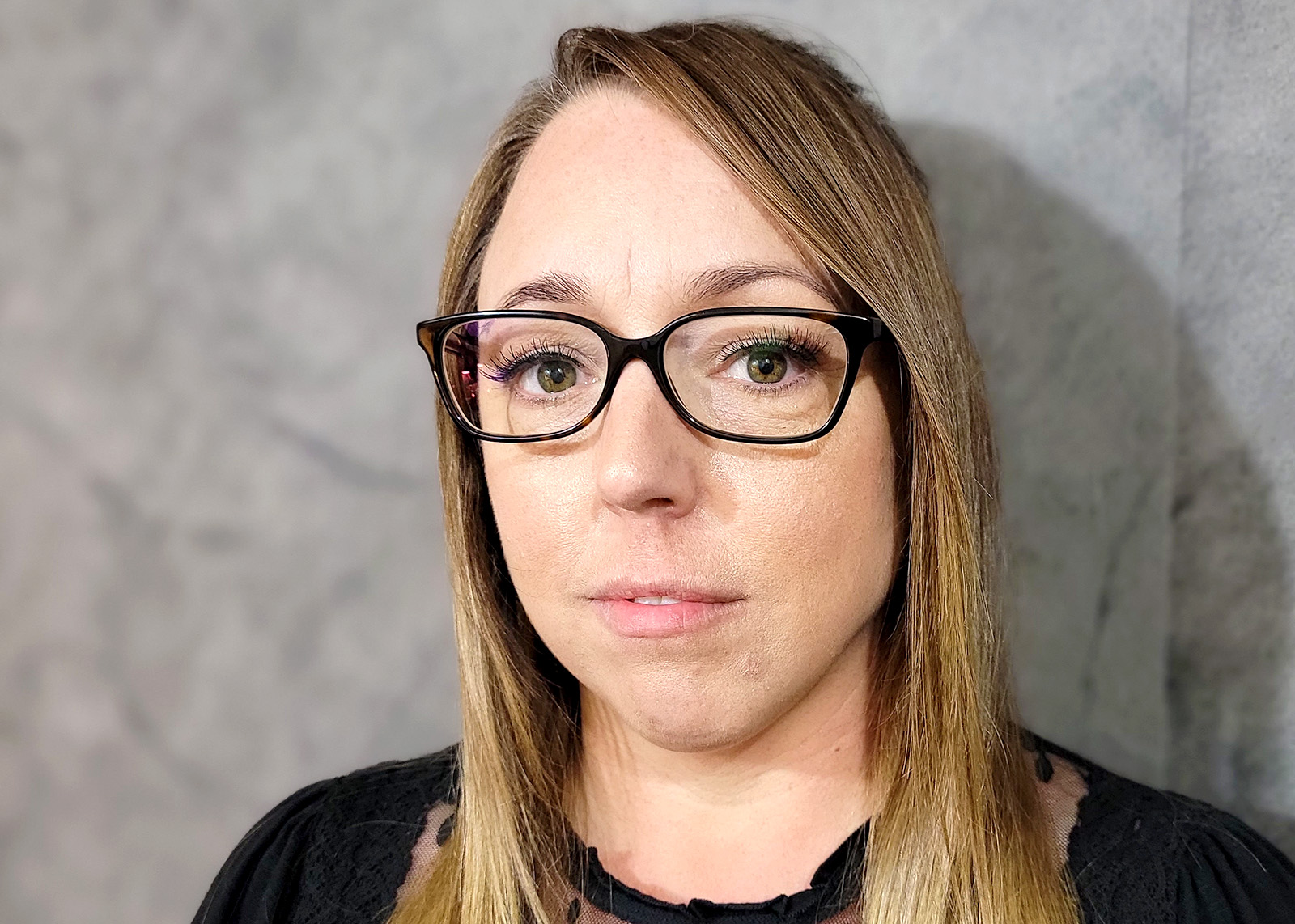
In the end, victim also feels the judge let her down
The criminal case against Aaron Klusmeyer, 38, ended with a negotiated plea, with sentencing left up to the judge. He was sentenced July 20, 2022 on two different charges.
One was for domestic assault in the fourth degree, a misdemeanor.
He was sentenced to 90 days in the county jail and two years of probation. But he was given a suspended execution of sentence, meaning he will not have to go to jail if he follows the rules of his probation. But he does have a conviction.
There was a second, more serious charge — unlawful use of a weapon, a Class A felony.
He was sentenced to five years of probation. In this instance, he was given a suspended imposition of sentence, meaning he will not have a conviction on his record if he follows the rules of his probation.
A conviction on this charge, a felony, would have meant he would have lost his law license and legal career. It was this charge that prosecutors discussed with Malea Klusmeyer about dropping during plea negotiations.
In the end, prosecutors did not drop the charge.
An out-of-circuit judge handed down the sentence, telling the defendant, “You’re getting a hell of a deal.”
Malea Klusmeyer was in the courtroom and heard that.
“It's hard to put it into words how I felt,” she said. “I was really angry. Definitely. I was scared. I felt kind of sad.”
The Daily Citizen reached out to Aaron Klusmeyer for comment on this story; he did not respond. The Daily Citizen emailed him and, in trying to reach him, accidentally called his father, who said his son could be reached by calling the law firm of Lowther Johnson Attorneys at Law.
In calling the law firm, the Daily Citizen was transferred to Aaron Klusmeyer’s voice message. A request for an interview was left on the message.
The Daily Citizen also reached out to the defense lawyers who represented Aaron Klusmeyer, but did not hear back by the time this story was published.
An unusual case because of law firm where defendant worked
Aaron Klusmeyer was an attorney with the law firm of Lowther Johnson, which has multiple connections to Greene County government agencies.
Not only had Klusmeyer done work for the Greene County Assessor's Office, but Lowther Johnson partner John W. Housley was, for many years, county counsel for Greene County, a position now held by fellow partner Austin Fax.
Because of these connections, an out-of-circuit judge was brought in to hear the case and — at one point — he ruled that the Greene County Prosecuting Attorney's Office be removed from the case for possible conflicts of interest, and an independent prosecutor be appointed.
Patterson appealed and prevailed.
For a true measure of the connections between Greene County government and Lowther Johnson, the Daily Citizen filed a request under the state Sunshine Law for records showing how much Greene County has spent for legal services over the past three years.
No. 2 is Legal Services of Southern Missouri at $630,000. The funds are used to provide legal counsel for parents whose children have been removed and placed in state care. Parents are entitled to counsel, according to state law, during abuse and neglect juvenile proceedings.
No. 1 is Lowther Johnson at $672,184.
Aaron Klusmeyer's defense attorneys argued in court documents that Lowther Johnson had a long history of representing various county offices, including Patterson and the prosecutor's office. They stated they expected to call several lawyers at Lowther Johnson as character witnesses for Klusmeyer to discuss his good character and his struggle with alcoholism.
They wrote: “This raises a legitimate concern that in an effort to appear that there is no favoritism being shown to defendant Klusmeyer or other Lowther Johnson attorneys who have represented Prosecutor Patterson and his office for decades, Prosecutor Patterson will appear exceptionally difficult to deal with in this case, trying to offset that appearance of impropriety.”
In Patterson's other ear was Malea Klusmeyer, who accused him of the opposite. She said her ex-husband received special treatment from Patterson’s office because he was a fellow lawyer who worked at the influential Lowther Johnson firm.
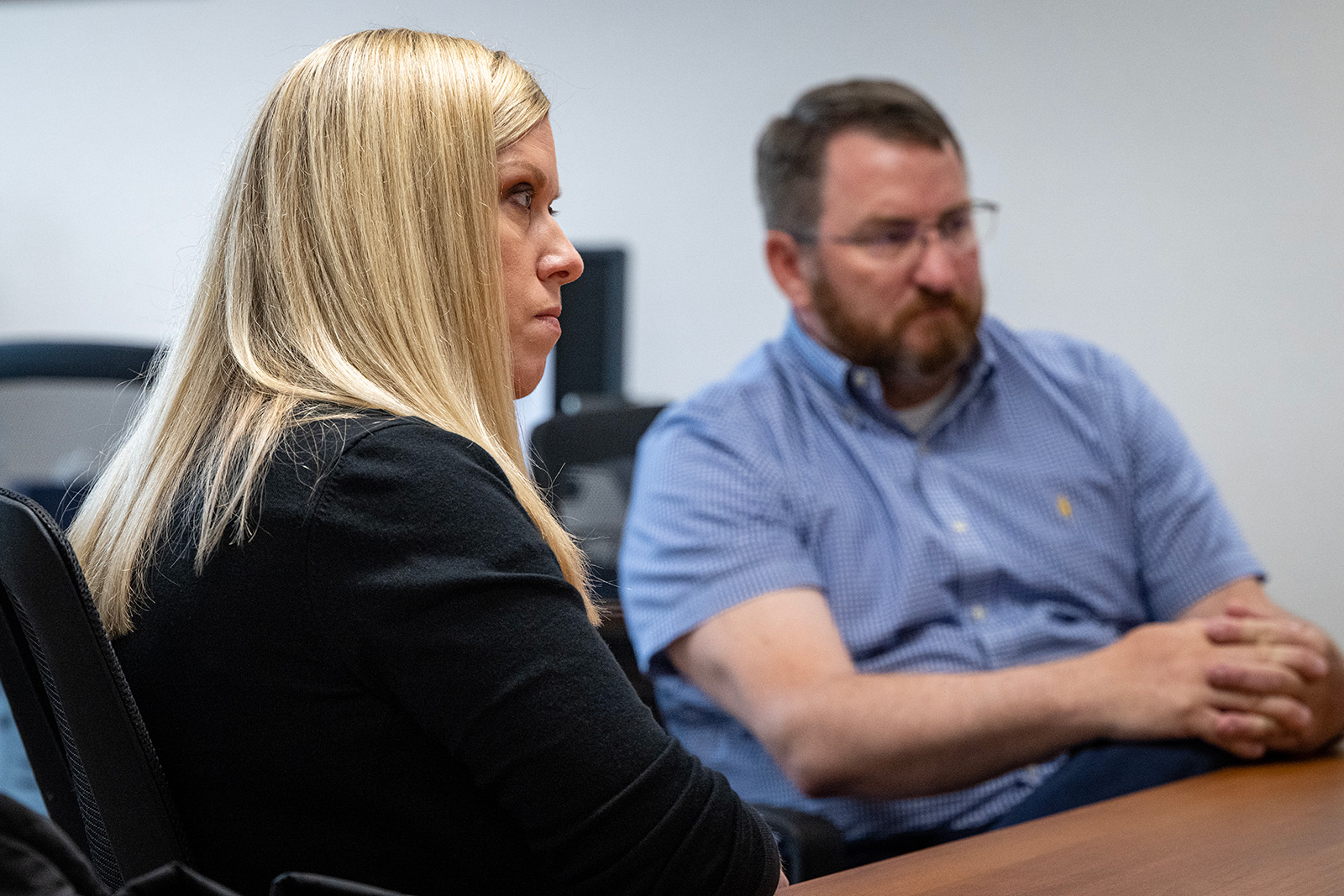
Prosecutors are not victim's attorney, but they support victims’ rights
Patterson and Shook dispute that there was favoritism.
Patterson said he considered the fact that defendant Klusmeyer was an attorney as an “aggravating factor” in the case, meaning Klusmeyer was an officer of the court — as a lawyer — who knew the law and knew better than to threaten his wife with a gun.
“We're not the attorney for the victim,” Patterson said. “We represent the state of Missouri and so our focus is on seeking justice and holding offenders accountable, while also honoring victims’ rights, ensuring that we're consulting with them and we're taking into consideration the things that they want.
“Sometimes those things aren't possible because of legal reasons. Or because we work in an evidentiary system — there's not evidence to support doing those kinds of things. Sometimes something specific a victim might want in a case isn't consistent with the facts and the evidence and the law.
We're not the attorney for the victim. ... We represent the state of Missouri and so our focus is on seeking justice and holding offenders accountable, while also honoring victims’ rights ...
dan patterson
“This was a case where we provided a great deal of personal interaction with the victim — early on even bringing together her legal services team, her Harmony House team and others.”
Courtroom full of Lowther Johnson attorneys show support
Judge Charles Curless, a semi-retired judge from Barton County, sentenced Aaron Klusmeyer to what the defendant sought in the felony gun charge: a suspended imposition of sentence, meaning no conviction appears on his record so long as he follows the rules of his probation.
Curless did not respond to several Daily Citizen interview requests made via email. An email sent to Curless Farms, a business connected to him, drew a response from the office manager: “Judge Curless is bound by law and is not allowed to discuss any case with you or anyone else.”
At that sentencing, Malea Klusmeyer recalled, the courtroom was chock-full of lawyers in suits from Lowther Johnson, who had assembled to show support for their fellow attorney.
Aaron Klusmeyer pleaded guilty to the misdemeanor charge of domestic assault and — because he received a suspended execution of sentence — is convicted.
As a result, the Missouri Supreme Court subsequently suspended his law license in January. He can re-apply in January 2024.
She called a family law attorney; he heard her and became furious
Malea said she and Aaron met on Match.com and were married six months later on March 31, 2018. She already had three children.
By February 2019, she said, the marriage was foundering.
“It started with him being just very subtly controlling, wanting to know where I was. Trying to kind of keep me away from my friends and family as much as possible,” she said.
On the night of Feb. 7, 2019, she and the children stayed at her mother's house because she and Aaron had argued.

The next morning she was back home and for the first time she called an attorney to obtain information on possibly filing for divorce. Her husband was in the bedroom; she thought he was asleep. The children were not present.
Aaron Klusmeyer heard her on the phone talking to an attorney. He was furious, she said, and wanted to know whom she had called.
As they argued, he went to another room and returned with a gun.
According to court documents, Aaron Klusmeyer threatened her with the gun and talked about killing the dog and himself. At one moment, she said, he pointed the gun at her and at another he pointed it at his head.
“I sincerely thought he was going to kill me,” she said. “I thought he was going to shoot me. I thought I was going to die. And knowing him, I thought that if he did, he would somehow get out of it. Somehow, it wouldn't be his fault.
“The only thing I could think of to do in that moment — I still had my phone in my hand — so I started recording it. Because my hope was in that moment, I was thinking if he kills me, hopefully someone will find this phone and they'll hear what actually happened. And they'll know that it was him.”
‘Once you hire an attorney, I’m going to kill myself’
Malea Klusmeyer shared the recording with police, prosecutors, two reporters with the Daily Citizen, and others.
Here is a transcript of that recording:
Her: Aaron, put it away.
Him: I should kill her (the dog) first because I'm not going to leave her here without a mommy or daddy.
Her: Aaron?
Him: What! (pause) Who did you just call?
Her: Why does it matter which attorney's office I called? Don't!
(She is crying and sobbing)
Him: You f**king bitch! You f**king bitch!
Her: Stop!
Him: You're a selfish f**king asshole!
Her: I am not. I am not the selfish one. I love you, and I have done everything I can for you.
Him: Who did you call?
Her: You calling me names all the time. And then point a gun at me.
Him: Who did you call?
Her: Why does it matter?
Him: It matters because I'm about to shoot myself.
Her: No!
Him: It matters.
Her: Aaron, stop, stop. Give me the gun. Put it away or I'm calling the police to come out here. Put it away, Aaron.
Him: All right, I'll f**king put it away.
Her: No.
Him: Just so you know. Once you hire an attorney, I'm going to kill myself.
Malea Klusmeyer said that prior to the recording, he specifically said he would kill her, too.
Malea Klusmeyer did not call police the day of the assault. Police did not go to the house then. No one seized the weapon or weapons.

In fact, the next month, the couple went to Greece together for a delayed honeymoon.
They fought and argued in Greece, she said, and at one point they were in a hotel room where she had her phone in hand and was trying to book another room to separate from him.
He physically tried to prevent her from making that call, she said. She recorded that altercation, too.
In April 2019, she filed for divorce.
The next month, she filed a police report with Battlefield police.
She hired a divorce attorney. She said Aaron Klusmeyer went to rehab for alcoholism in St. Louis. She said she took half the money in their joint checking account and soon moved out.
He was charged Aug. 9, 2019.
Why did prosecutors suggest the felony gun charge be dropped?
The goal all along, Patterson said, was to obtain a conviction for domestic assault.
“One of the reasons for that is the federal law says if you have a conviction on a misdemeanor domestic violence crime, you can no longer lawfully possess a firearm.”
(Missouri’s Second Amendment Preservation Act would have allowed Aaron Klusmeyer to keep his guns, but it was struck down by a federal judge in March.)
The domestic assault case was stronger than the gun charge, Patterson said.
“We had a good faith basis to file that (gun) charge. But we were being aggressive in charging that. For example, in this case, we didn't have an actual gun.
“Most of the time, my general rule is that we don't file an unlawful use of a weapon charge unless we have the gun or perhaps have spent shell casings in a case where a gun was fired.”
At no point did I say I was against testifying.
malea klusmeyer
Second, Patterson said, early in the criminal proceedings, Malea Klusmeyer did not want to testify in court.
“When we first filed this case, that was her position. And so having voiced that concern to us, that is one of the things we considered in various ways of prosecuting the case.”
(Malea Klusmeyer told the Daily Citizen that the incident with her ex-husband led to multiple health problems, including a diagnosis of post-traumatic stress disorder.)
She disputed Patterson’s comment that early in the case she did not want to testify.
“At no point did I say I was against testifying,” she said.
Patterson said Aaron Klusmeyer's defense lawyers would have fought longer and harder against the felony gun charge, prolonging a case that had already taken a long time due to the delay in reporting it and the overall impact that COVID-19 had on the courts.
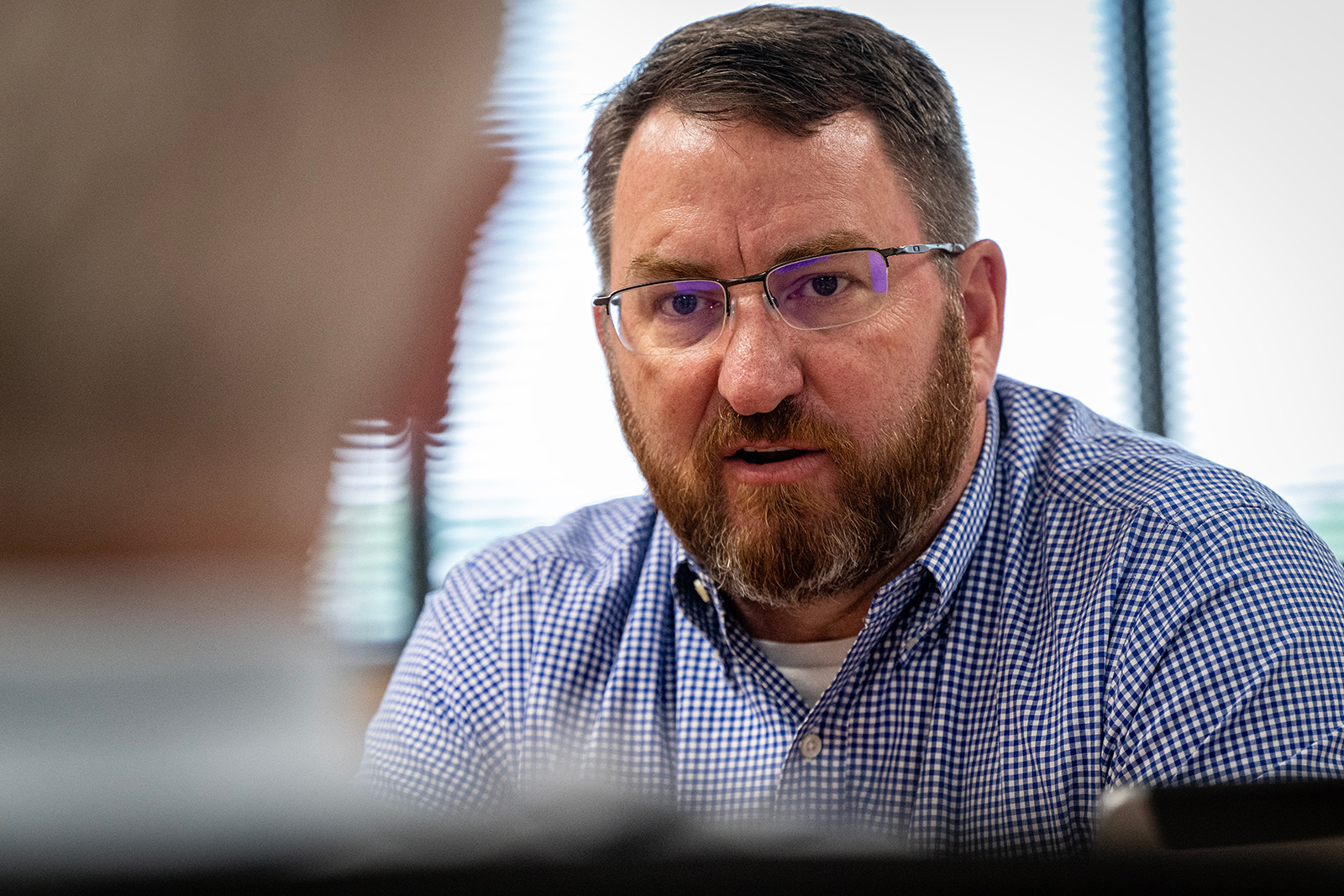
Why didn't law enforcement seize the defendant's guns?
Malea Klusmeyer said her husband never handed over to law enforcement the gun he threatened her with, even though his arrest warrant stated: “The defendant must surrender all firearms to the Greene County Sheriff's Office.”
That never happened.
The guns were never seized because they were no longer in Klusmeyer's possession by the time Malea Klusmeyer went to police, Patterson said.
In fact, Aaron Klusmeyer had given his guns not to law enforcement but to an unnamed co-worker at Lowther Johnson.
Klusmeyer's guns ended up in the “physical possession of one of the members at Lowther Johnson,” according to court documents filed by Klusmeyer's defense lawyers, who did not work at Lowther Johnson.
“Since law enforcement apparently never sought to obtain that handgun, those firearms were eventually sold by that member,” according to court documents.
According to Patterson: “Would I have liked the police to have gotten the gun and to have had it? Absolutely. But that's just not where we found ourselves in the set of facts we had.”
Malea Klusmeyer disputes Patterson’s recollection. She said she had access to the gun when she filed a report with Battlefield police but the sergeant who took the report said the gun was not needed.
Did prosecutors take seriously her concerns that Aaron Klusmeyer was violating an order of protection?
Malea Klusmeyer said prosecutors did not take seriously her concerns that Aaron Klusmeyer was violating an order of protection.
Patterson said that is not accurate. He said prosecutors often talked to Malea Klusmeyer about this. He said that the main problem was that she had dropped her order of protection.
“As part of the divorce decree, she agreed not to pursue that order of protection at that time or in the future. So there was no order of protection,” Patterson said.
Nevertheless, part of Aaron Klusmeyer's bond requirement was that he not be within 1,000 feet of her.
The question of whether Aaron Klusmeyer might be violating a protection order or the bond requirement came to light when one of Malea Klusmeyer’s co-workers said she saw Aaron Klusmeyer driving through the parking lot outside the building where Malea Klusmeyer worked.
“When she told me that, I was very scared and upset,” Malea Klusmeyer said.
Patterson said the co-worker was unwilling to testify to what she saw.
Malea Klusmeyer subsequently gathered information regarding Aaron Klusmeyer's driving habits via data from his ankle monitor. She was assisted in this by an attorney outside of the prosecutor’s office. It indicated Aaron Klusmeyer had driven within 1,000 feet of where she worked over 200 times over several months.
But Patterson said Malea Klusmeyer had told his office she had taken a leave of absence and was not actually working.
On the other hand, Malea Klusmeyer told the Daily Citizen that she was on a medical leave part of that time, but not all of it.
“He's giving Aaron a pass to continue to do things that I think are very clearly being done to try to intimidate me or scare me,” she said.
Patterson disputes that. He said once he was informed the co-worker allegedly spotted Aaron Klusmeyer in the parking lot, his office had the work address programmed into the ankle monitor's exclusion zone.
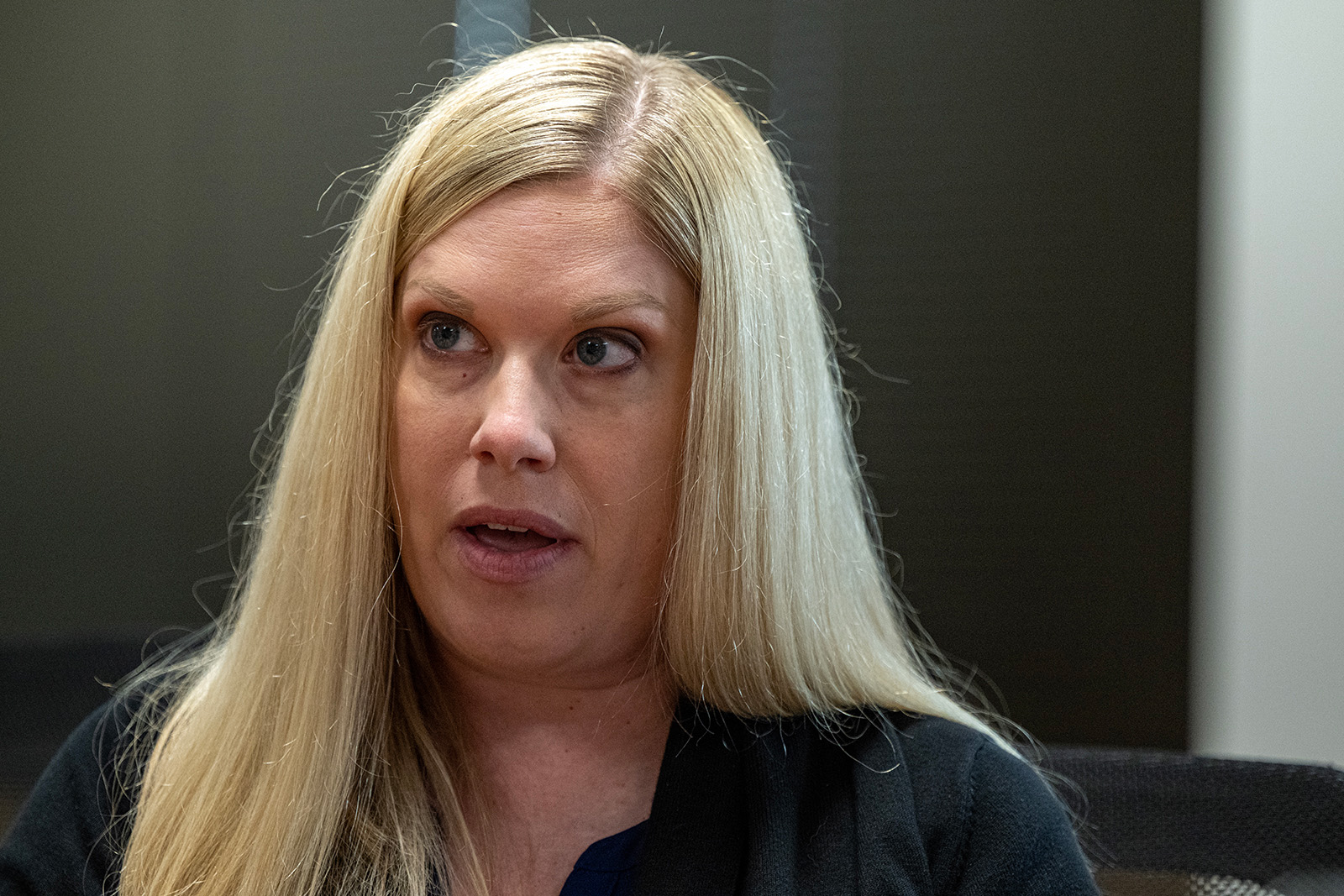
Why did prosecutors inform her a felony conviction could prevent her abuser from ever practicing law again?
Malea Klusmeyer said that Dara Lindsay, an assistant prosecuting attorney who worked on her case, informed her that if Aaron Klusmeyer was convicted of the gun charge, he could lose his law license and law career.
Lindsay is supervised by Shook, who is supervised by Patterson.
“I was like, ‘Why does that matter?' I'm not sitting here wishing him any ill will, but I want whatever the appropriate consequence is,” Malea Klusmeyer said.
After all, she said, she has an advanced degree, too. It's a master's in counseling.
Patterson said he believes the discussion about the law degree was on the same day he filed the charges, which was the same day he filed a complaint seeking that Aaron Klusmeyer be disciplined as an attorney.
In Patterson’s view, he already was addressing the issue of Aaron Klusmeyer's law license.
Shook said prosecutors routinely talk to victims about possible repercussions of criminal proceedings.
“I think that discussions about his law license also may have related to some of the competing interests that she sort of was dealing with and how she was giving us information on how she wanted the case handled,” Shook said.
“Within the criminal justice system, you have three big purposes on the outcome of the case: rehabilitation, retribution, and restoration. So, when people come in, they may feel very strongly that one of those things is most important to them. One victim will say, ‘I really just want the person to get treatment.’ So, that's really a focus on rehabilitation.
“Another person might come in and say the most important thing to them is getting reimbursement for expenses associated with the crime.
“And then also retribution, that people should be punished for the things that they do. And so in having discussions with Malea — or with any victim — I think it's helpful to sort of walk them down the path of each potential disposition and then talk about how that disposition would relate to their interests.”
Why did prosecutors drop wording in the assault charge that said he threatened to kill her?
Malea Klusmeyer said prosecutors dropped key language in the charging document that said he had threatened to kill her.
“I mean, obviously, I guess it benefits him,” Malea Klusmeyer said of her ex-husband. “But why would you do that?”
The words removed as part of plea negotiations were “and/or threatening to kill her.” They had been in the misdemeanor domestic assault charge.
Malea Klusmeyer said: “From the way I view it — this way Aaron can play it off as, ‘I was just waving it around during a fight and she just, you know, made this stuff up.'”
She shared with the Daily Citizen a June 13, 2022, email from Patterson:
“I understand that you are frustrated that the misdemeanor charge language was modified as part of the plea. The modification of the charge language, however, was a valid legal strategy decision to achieve the guilty plea, does not affect the plea offer or offenses to which the defendant pleaded guilty, and does not prohibit us from arguing the verbal threat at sentencing.”
Patterson said the removed language was not needed for a conviction of domestic assault in the fourth degree. He called it “legally surplus.”
Then why was the wording there in the first place?
“When you're going to trial, you think about how things are going to read in the jury instructions, and how you want the evidence to come in. So you may consider the actual wording of the conduct in the charge in the way that would perhaps best support what you want to do at trial,” Patterson said.
Again, the case never went to trial and prosecutors never dropped the felony gun charge.
Malea Klusmeyer’s complaint is that at least twice she felt pressured by prosecutors to agree to drop the charge during plea negotiations with the defendant’s lawyers.
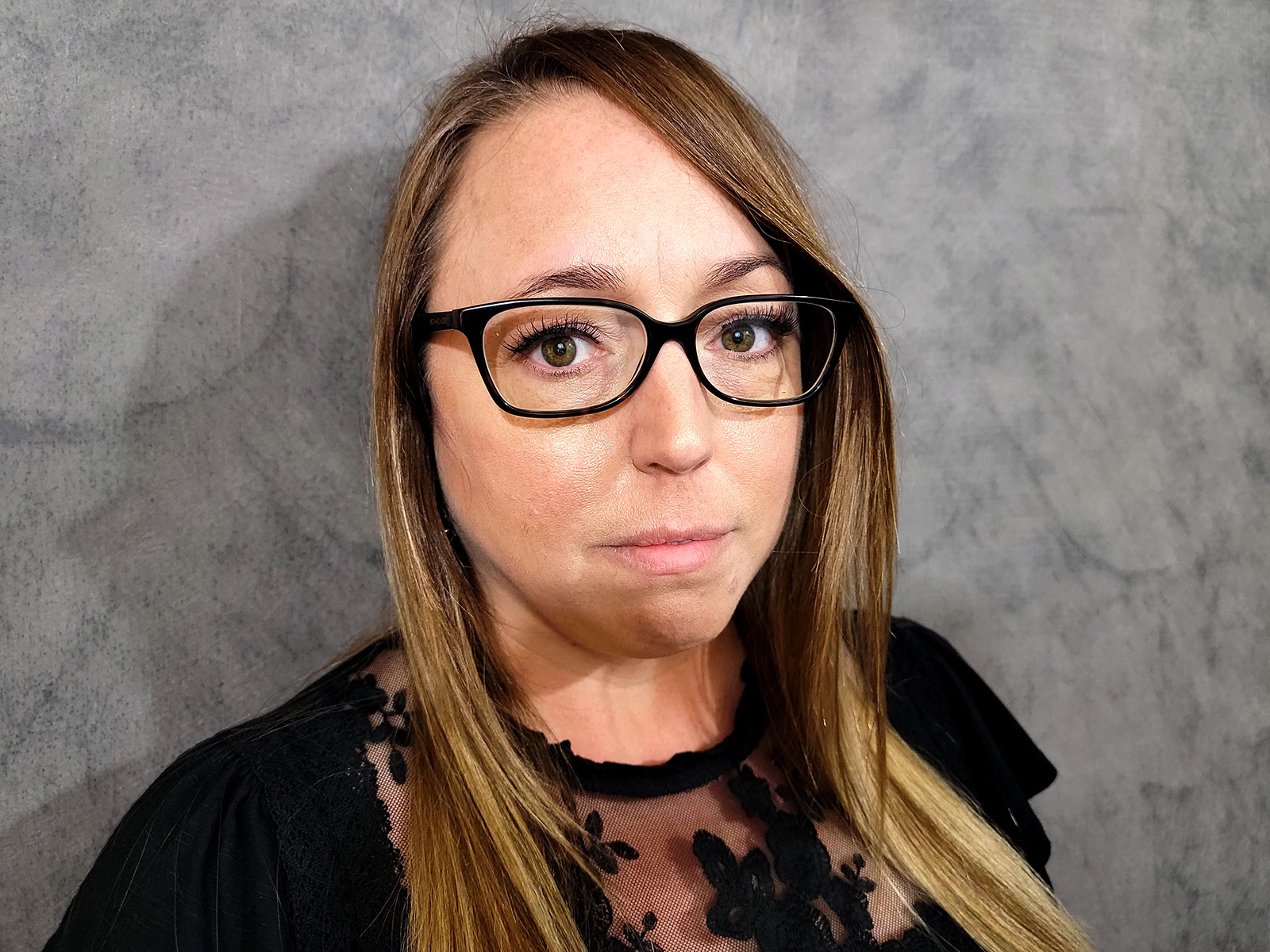
Two very different perspectives
“I think it's a matter of perception,” Patterson said. “There were lots of times where she would be very happy with what Emily and others were doing and times that she would be very unhappy.”
Shook said she cannot recall a where the prosecutor's office, not her individually, has spent more time with a victim.
“In interacting with victims, we talk a lot about being trauma-informed,” which simply means being “kind-hearted,” she said.
“The interactions that I've always had with Malea were kind-hearted, and I wanted to be honest with her, and fair, and to try to be sympathetic to where she's coming from. But to be kind-hearted doesn't mean to be without any boundaries. It doesn't mean to always give someone everything that they want from the conversation.”
That is not how Malea Klusmeyer remembers it.
“There were a million times I just wanted to quit, because of the emotional turmoil that I had gone through and, quite honestly, what I went through with the whole court process and prosecutors. It was a secondary trauma, what they put me through.”
About Living in Fear
This special investigative report explores the far-reaching and insidious nature of domestic abuse in our community. Living in Fear is being presented in four parts over two months:
- Part I: Black eye for Greene County, which was published May 8-11, looks at the depth and breadth of the problem here.
- Part II: Obstacles to leaving, published May 22-25, examines the dynamics and complications facing victims looking to leave abusive relationships.
- Part III: Systemic issues, published this week, puts a focus on the criminal justice system and potential shortcomings.
- Part IV: Searching for solutions, to be published in late June, taps local, regional and national experts in search of ways to improve the system and reduce domestic violence.
Next in the Living in Fear series: Coming later this month, an exploration of ideas to improve the system for investigating and prosecuting domestic violence cases in Springfield and Greene County, plus a discussion of ideas for reducing the incidence of domestic abuse.

